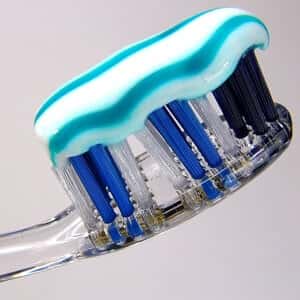
Q. My husband has canker sores in his mouth all the time. The doctors we have seen say it is not curable; he just has to live with it.
What can you recommend for easing the pain? We have tried many topical remedies plus some prescription drugs. He is not sleeping well due to the pain and he needs relief.
A. We have collected many remedies for canker sores (aphthous ulcers) over the last few decades. They include L-lysine, buttermilk, sauerkraut juice, green beans, kiwi fruit and even watermelon. Others have found that taking a supplement of 1000 micrograms of vitamin B12 daily can diminish the suffering from canker sores.
Milk of Magnesia
One reader wrote about milk of magnesia:
“My canker sores were so bad that it hurt to close my mouth and swallow. I would drool on myself.
“I went to a doctor who told me I needed to balance my digestive system. He recommended putting chewable milk of magnesia tablets directly on the sores. (Don’t overdo it–it’s a laxative.)
“Within 6 or 8 hours all the pain went away, and the sores themselves healed in a few days.”
Aloe Vera
Research shows that a gel containing aloe vera and myrrh extracts can also help heal canker sores quickly (Journal of Oral Pathology & Medicine, July, 2014).
SLS-Free Toothpaste
Many readers report that avoiding sodium lauryl sulfate (SLS), a wetting agent found in many toothpastes, is a helpful preventive tactic. Here’s one story from Al:
“Years ago I was plagued with multiple canker sores at any given time. It was awful! I went to several doctors and dentists and most concluded in was a viral infection and gave me meds.
“Nothing worked until someone in passing (a hairdresser I think?) mentioned a possible link between SLS and canker sores. I switched to toothpaste without SLS and voila! No more canker sores.
“If I accidentally use a mouthwash or toothpaste that has SLS, I get a canker sore. My fave brands have been Sensodyne (check the labels as some have SLS and some don’t), and there is a new one from Crest without SLS too.”
C. Foreman offered this experience, also featuring a Sensodyne brand toothpaste:
“I battled canker sores for about three years, typically getting breakouts every 2 or 3 weeks. When they would arise I would get huge sores on my cheeks and gums as well as blisters on the back of my tongue.
“My doctor insisted that they were stress related and that I needed to lower my stress level. However, my 9 year old was also suffering from sores at least once a month.
“I finally found that Sensodyne Pronamel was SLS free. Neither of us have had a sore in nearly 6 months now.
“I will never use another paste with SLS. It’s amazing how such a simple switch has made such a big difference.
There is a list of other SLS-free products at slsfree.net.
Diet
It may also be worthwhile to analyze reactions to diet. Some people find that reactions to certain foods can trigger canker sores, as reader LB noted:
“In a much-discussed series of articles in the NYT last year, Mark Bittman suggested that canker sores may be related to a food intolerance (for him specifically, it appeared to be dairy products). It’s anecdotal but something to think about.”
Celiac Disease
In addition, canker sores might be signaling a gluten intolerance, especially celiac disease. Reader CPMT pointed this out on our site:
“I just read an article about people with gluten sensitivity or celiac disease often have problems with canker sores and angular cheilitis.”
Since celiac disease has many other serious implications for health, it would make sense to ask your husband’s physician to do a test to rule this possibility out. You can learn more about celiac disease as well as non-celiac gluten sensitivity from our hour-long interview with one of the world’s leading experts on this condition, Alessio Fasano, MD.

